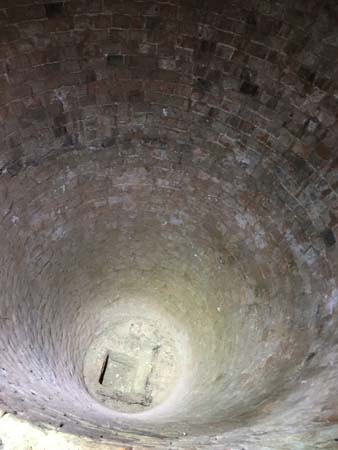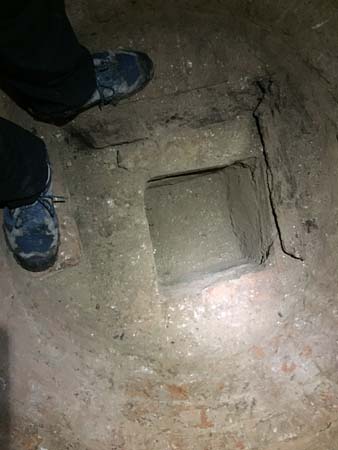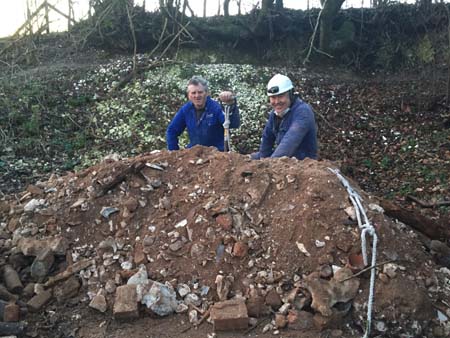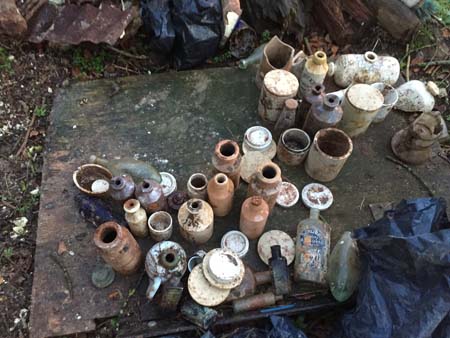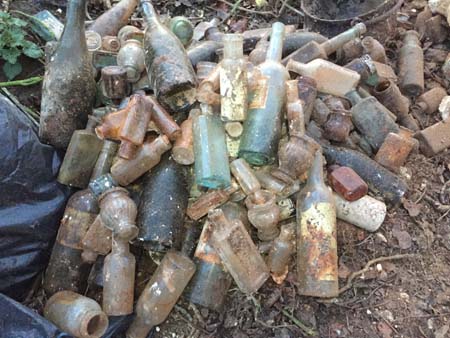Burwash
| 3rd July Initial dig by farmer using JCB. This reached down to about 8′. The remains of a previous exploration trench could clearly be seen cutting across the new one. We fenced off area to make it safe for cattle in field. | 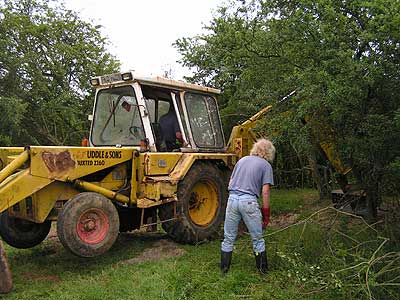 |
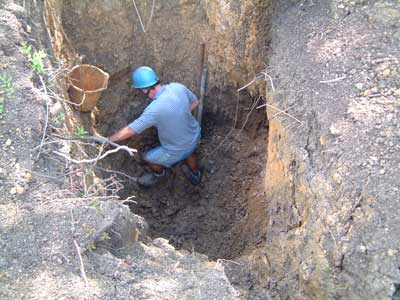 | 7th August We removed some slippage that had occurred since the last dig and explored the bottom of the hole to locate original shaft position. Temporary scaffolding was placed across the top of the hole to facilitate hauling and removal of infill. Work started to construct the ‘tower’ inside the hole. This is backed with corrugated steel sheeting cut to size and slipped (or bashed) behind the tower frame. The area around the shaft was started to be backfilled. |
| 11th September A permanent frame was erected above the shaft to allow petrol driven winch to be installed. Work continued to dig and backfill the area around the shaft. | 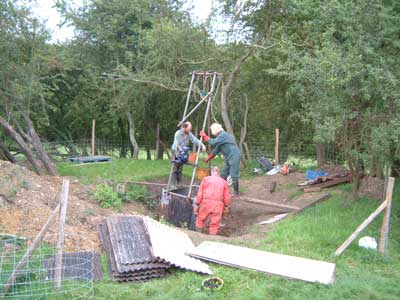 |
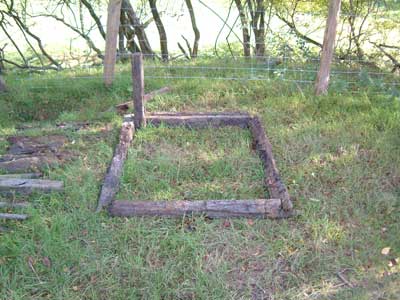 | 25th September Continued digging and backfilling area around shaft. Various pieces of wood from the original shaft were excavated. |
| 9th October More digging and backfilling. Added another 5 feet to the depth of the shaft and passed through a layer of limestone which is clearly visible. | 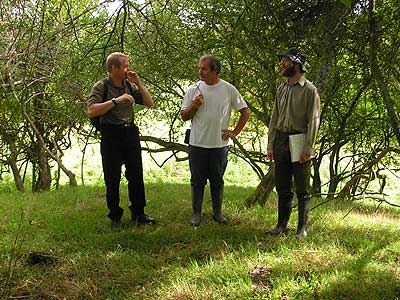 |
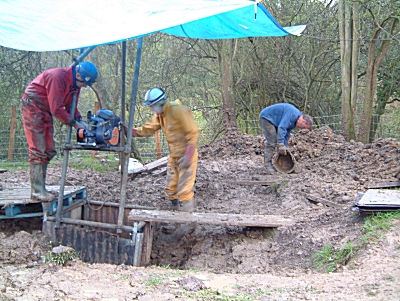 | 6th November We had to haul all the equipment down to the dig site in a wheelbarrow due to the very soft ground. Despite this and the wet weather we managed another 5 feet. The excavation is now in the original shaft cut through sandstone. |
| 20th November The digging continued despite the freezing temperatures and the present depth is now 35 feet. The top has been extended and back filling is happening around this to make sure any surface water flows away from the shaft and not into it. Loads more wood from the original shaft has been recovered and the remains of the original timbers can now be seen in one corner the shaft | 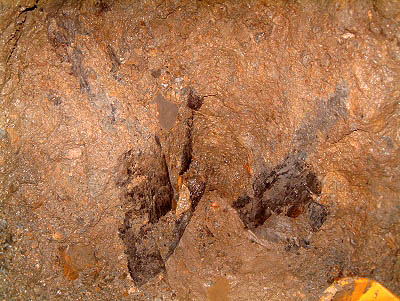 |
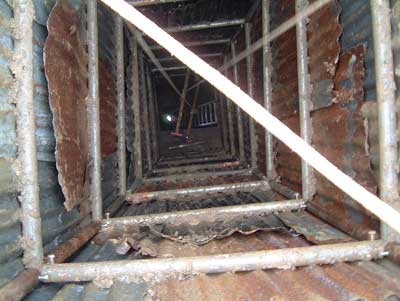 | 26th March The first dig of the new year saw us shuttering up the 9 foot of previously dug but un shuttered shaft. The weather was not very kind (it rained), but the farmer was and lent us his tractor to transport the shuttering and poles. At one point a gurgling sound from the bottom caused interest as all the water disappeared, but subsequent trampling in the bottom seems to have blocked it again. |
| 3rd May Added about another 4 feet to the shaft and shuttered 3 feet. Although the weather was kind to us today, nice sunshine, were disappointed to see that water was entering near the bottom of the shaft and had formed quite a puddle by the time we left. Hopefully we have not hit the water table and this will have drained in time for the next dig. Still large amounts of old shuttering timber coming out, we have quite a pile now. | 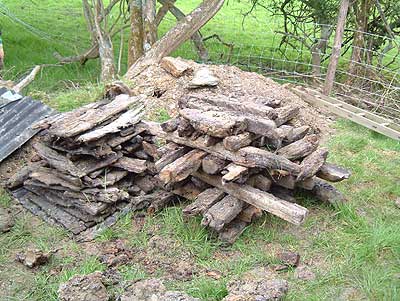 |
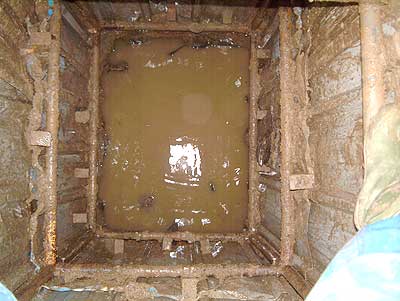 | 25th June Things don’t look too promising at the moment. Water is coming in to the shaft in one of the corners and seems to be settling at a constant level. Despite much prodding we couldn’t seem to replicate the gurgling we saw on the 26th March. When we left there was about 5 inches of water in the bottom of the shaft. |
| 27th August Not much to report, more pumping, more digging, more water. | 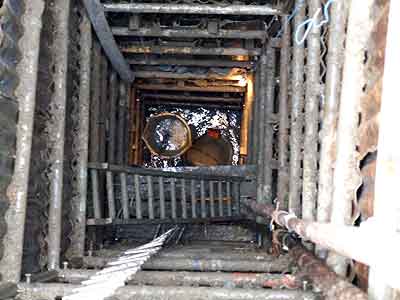 |
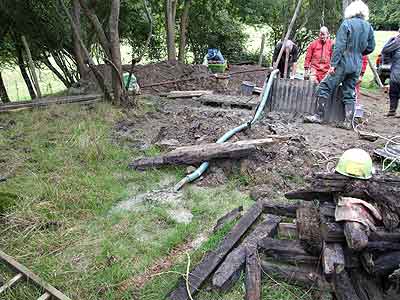 | 24th September Even with the pump running flat out the level of the water remained constant despite the dig continuing downward. By the end of the day the water was at thigh height. |
| 8th October For the last push of the year we increased the pumping capacity by using a sump pump in the bottom of the shaft to pump the water up to the main lift pump. This necessitated having a generator on site as well as all the usual kit. Despite shifting about 60 gallons per minute we were still not making headway. |
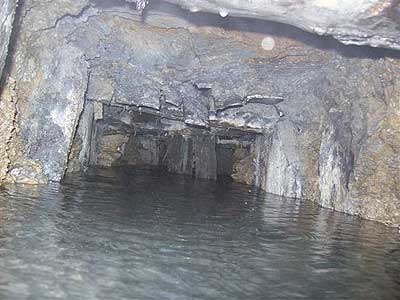 | 26th – 28th September 2008 After hiring a 3 phase pump the shaft was eventually pumped out and with a little digging the entrance to the mine workings were slowly exposed. |
| The workings could be clearly seen extending away from the shaft. The main route is in very poor condition and appears to be collapsed after a few meters. Side workings appear to have been worked out and bricked up. The workings are only visible with the pump running and quickly become submerged when the pump stops. | 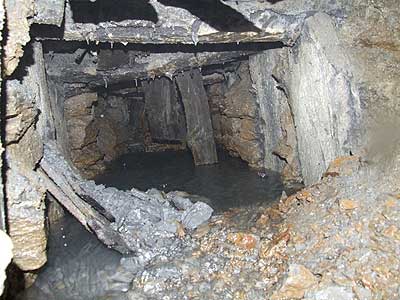 |
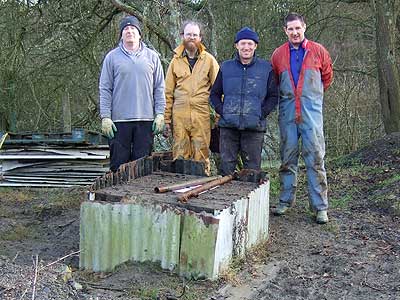 | 28th December 2009 This project has now been completed and no further exploration is anticipated in the foreseeable future. The final outing was to cap the shaft and tidy up the site. The water at the bottom of the shaft was at the highest level we have ever seen at 16.5ft. Together with a depth of 35ft to the surface of the water this gives a total shaft depth of 51.5ft. |



